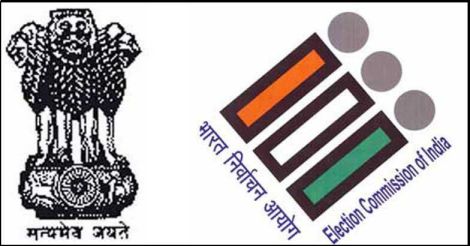Election in Kerala is on May 16. The polls have been declared in Assam too. The only connection between them is that the Election Commission (EC) conveyed them to the people at the same time. And what are the results?
In one place where election is going to be held, Chief Minister Gogoi, who does not have time to scratch his head amid hectic campaigning, should not use government pencil even to scratch his head.
In the other place, Chief Ministers Jayalalithaa and Oommen Chandy, should not touch government pencil for two and a half months. The first is understandable. But the second reminds of a robotic mind and an artificial intelligence, which thinks even before us the word that we are going to type on a computer and jumps the gun to land us in trouble.
The code of conduct existed even before T.N. Seshan became the chief election commissioner (CEC). The golden throne on which the CEC sits is a chair that only those who please the authorities get.
Thus, once you get to sit on that chair, you can say anything. And what you say is the law. Seshan’s place in history is as the first CEC who spotted that possibility, even though it was only for a short time.
Seshan did a lot of good things. The most important among them is that he made the code of conduct clear and precise. But the announcement this time is an example of using it without imagination.
The stand that for the next two and a half months only the autocratic rule of the election commission is allowed here cannot be accepted. Or let political parties consult and seek president’s rule.
If that has to be credible, political impartiality of governors must be ensured. The age of the British, when only officers were governors, will not return. Hence that is impractical.
Then, what can be done? The election commission and political parties must think about it without hurry over a period of time and come to a decision on how to handle this problem in the long term.
To overcome the crisis for the time being, the election commission must show the courage and propriety to announce that the code of conduct will come into force only from the date of notification.
We will be notified on April 22. Till then let the government function as usual. Anyway people disgust the haste to inaugurate things, which is seen now. Hence it can be said that such things should not happen. But the commission must not interfere in normal work. People will notice blatant misuse of power. If that affect results, there will be election cases.
The dos and don’ts, which were released in January 2007, end with the usual government disclaimer that the list is not complete: or “merely illustrative, not really exhaustive” in government lingo. Hence nothing untoward will happen if decisions are left to propriety.
Agreed, the government should not announce new projects and concessions or lay foundation stones. But the next paragraph says if a work is completed do not delay its use.
What we read next is “the coming into force of the model code of conduct cannot be given as an excuse”.
Which means, basically, even now the touchstone is the sense of propriety. It is understandable if it is said that a new Mullaperiyar dam must not be announced and work on it should not be started. But the current practice provides loopholes for even such interpretations that if a wooden bridge across Meenachil River collapses, Oommen Chandy must not go there and call the army to build a temporary bridge.
Let us assume that a welfare pension was frozen on the basis of a complaint. In this case the mistake can be rectified and pension can be given, and it must be given before March 31. As per the current practice, even for that the election commission has to approve.
Another matter is the transfer of officers. It can be said that officers like collectors, who have a direct role, should not be transferred. But it is ridiculous to say that all transfers in the state should be frozen for three months from now. Should a poor government official, dreaming of replacing a person retiring in April to earn the benefit of a fixation and get matching pension benefits, be put in trouble?
Hence the code of conduct must come into effect only from the date of notifying the election. Agreed, the misuse of power is not allowed. But leave that to the sense of propriety of chief ministers. If there is any complaint, the commission or the court can examine it at any time. But this three-month freeze is unpardonable.
(The writer is a former additional chief secretary)





































































































































































































































































































































































































































































































































































































































Disclaimer
The comments posted here/below/in the given space are not on behalf of Manorama. The person posting the comment will be in sole ownership of its responsibility. According to the central government's IT rules, obscene or offensive statement made against a person, religion, community or nation is a punishable offense, and legal action would be taken against people who indulge in such activities.